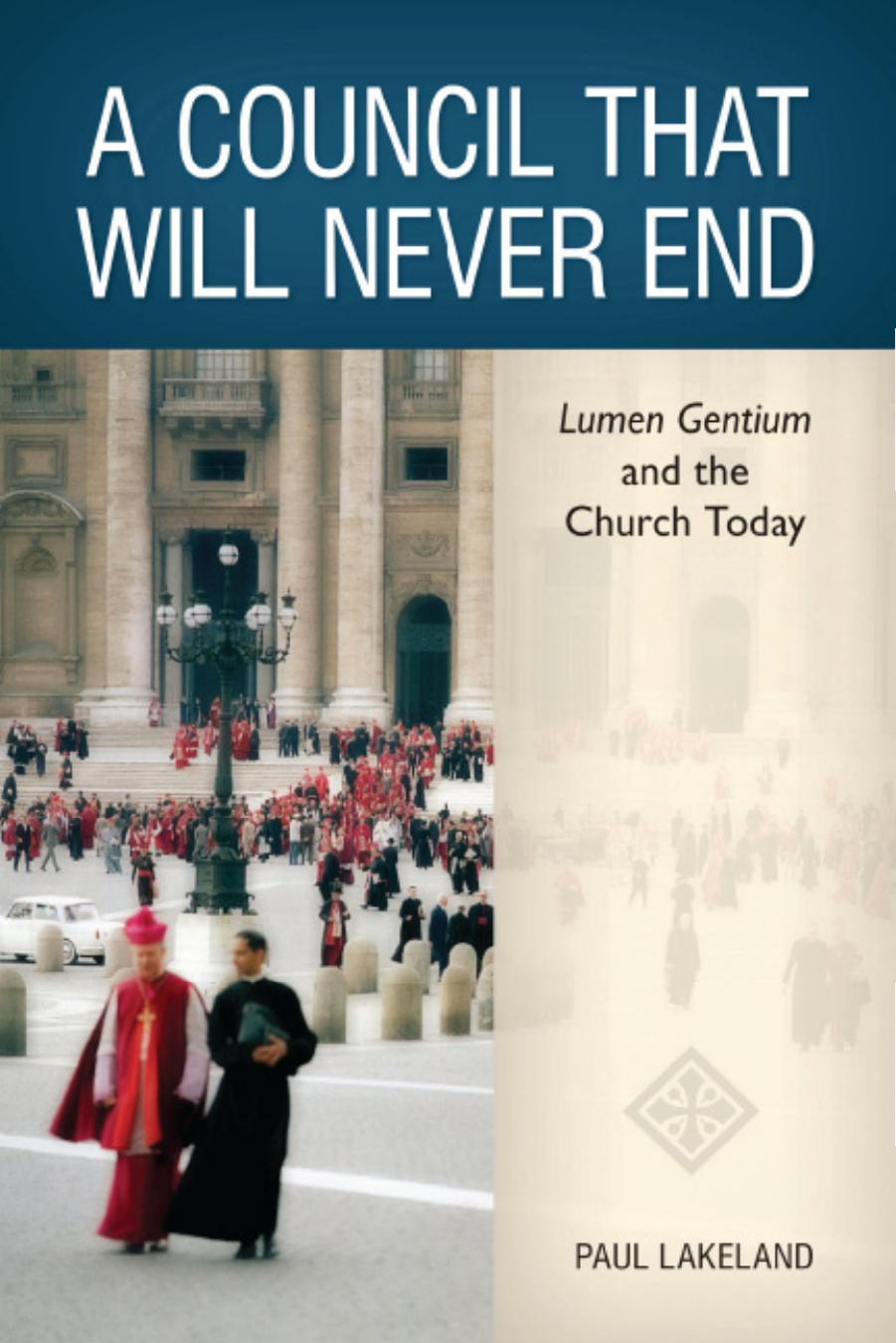A Council That Will Never End: Lumen Gentium and the Church Today by Paul Lakeland

Author:Paul Lakeland
Language: eng
Format: epub, pdf
ISBN: 978-0-8146-8091-9
Publisher: Liturgical Press
Published: 2013-03-12T16:00:00+00:00
Cooperation in Mission and Ministry
In their work of bringing the light of Christ to the world, the laity must cooperate with one another, says Lumen Gentium, so that by working together, they can bring the world closer to “the rules of justice” and “the practice of virtue,” through which it “is better prepared for the seed of the divine word.” They have to walk a tightrope between their responsibilities as members of the Church and those of the secular world, “which is governed by its own principles,” and be especially careful to resist the erosion of freedom of religion (36). Lay people do all this by exercising their baptismal responsibilities in the world without the direct intervention of the Church, though of course in the light of its teaching. Today, perhaps more so than at the time of the Council, Catholic lay people active in ministry are likely to be better educated, especially in theology and Scripture. Because this means that they need to refer to the assistance of the clergy less frequently than in the past, it raises in acute form the issue that the Council fathers next went on to discuss: the fraternal and pastoral relationship of the clergy, especially the local pastor, and the community of faith that he leads.
Section 37, which closes the chapter on the laity, examines in detail the way in which the ordained ministers and lay people should interact and it rewards close attention. It begins by asserting the rights of the laity to the help of their clergy, “especially that of the word of God and the sacraments.” Immediately, this is qualified with the statement beloved of today’s Catholic reform movements that “to the extent of their knowledge, competence or authority the laity are entitled, and indeed sometimes duty-bound, to express their opinion on matters which concern the good of the church.” If and when this proves necessary, the text continues in words not so beloved of these same reform movements, “this should be done through the institutions established by the church for that purpose.” These actions of the laity should be marked by truth, courage, prudence, reverence, and charity. While “the laity should promptly accept in christian obedience what is decided by the pastors,” the pastors in their turn “should recognize and promote the dignity and responsibility of the laity” and “willingly use their prudent advice and confidently assign offices to them in the service of the church, leaving them freedom and scope for activity.” There is a clear indication by the bishops that fostering this kind of relationship between the pastor and the people is a benefit to both. Lay responsibility is strengthened and their enthusiasm for cooperation is enhanced, while the pastors in their turn “are enabled to judge more clearly and more appropriately in spiritual and in temporal matters.”
The clear message of this discussion is that there is a separation of function between the pastors and the laity, but in a common cause, and their respective responsibilities are exercised in an atmosphere of mutual respect.
Download
A Council That Will Never End: Lumen Gentium and the Church Today by Paul Lakeland.pdf
This site does not store any files on its server. We only index and link to content provided by other sites. Please contact the content providers to delete copyright contents if any and email us, we'll remove relevant links or contents immediately.
Resisting Happiness by Matthew Kelly(3341)
The Social Psychology of Inequality by Unknown(3031)
Day by Elie Wiesel(2786)
Designing Your Life by Bill Burnett(2748)
The Giving Tree by Shel Silverstein(2345)
Human Design by Chetan Parkyn(2075)
The Supreme Gift by Paulo Coelho(1980)
Angels of God: The Bible, the Church and the Heavenly Hosts by Mike Aquilina(1969)
Jesus of Nazareth by Joseph Ratzinger(1811)
Hostage to the Devil by Malachi Martin(1803)
Augustine: Conversions to Confessions by Robin Lane Fox(1774)
7 Secrets of Divine Mercy by Vinny Flynn(1747)
Dark Mysteries of the Vatican by H. Paul Jeffers(1723)
The Vatican Pimpernel by Brian Fleming(1703)
St. Thomas Aquinas by G. K. Chesterton(1635)
Saints & Angels by Doreen Virtue(1606)
The Ratline by Philippe Sands(1580)
My Daily Catholic Bible, NABRE by Thigpen Edited by Dr. Paul(1503)
Called to Life by Jacques Philippe(1481)
